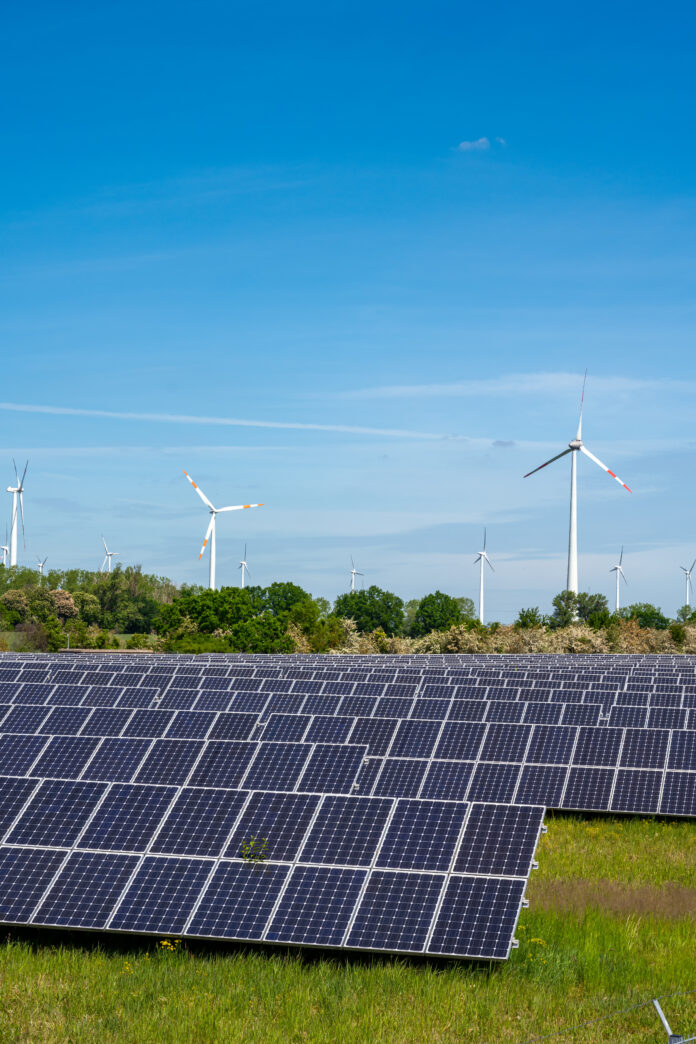The Minister for Communications, Climate Action and Environment, Eamon Ryan T.D. yesterday (20th July 2020), announced that Ireland has received State aid approval from the European Union to operate a new Renewable Electricity Support Scheme (RESS) out to 2025.
Minister Ryan said:
“As the Minister for Climate Action, I am delighted to welcome this announcement today from the EU Commission. It endorses the Government’s commitment to the Green Deal and launches a renewable energy revolution in Ireland. The RESS will provide us with a platform for rapid deployment of onshore and offshore wind and solar projects at scale and at least cost, replacing fossil fuels on our energy grid. It also offers communities the opportunity to produce their own power and share in the ownership of Ireland’s energy revolution.”
“As stated in the Programme for Government, Our Shared Future, we have committed to an average 7% per annum reduction in overall greenhouse gas emissions from 2021 to 2030 (a 51% reduction over the decade) and to achieving net-zero emissions by 2050. The RESS is one of the flagship measures that will assist Ireland on its way to achieving this target”.
The RESS will play an integral part of the progression to the ambitious 70% renewable electricity target by 2030 set out in the Programme for Government and to Ireland’s contribution towards an EU-wide renewable energy target of 32% by 2030, within a competitive auction-based, cost-effective framework.
Key features:
- The Renewable Electricity Support Scheme (RESS) is a competitive auction-based scheme which invites renewable electricity projects to bid for capacity and receive a guaranteed price for the electricity they generate for a maximum of 16 years.
- The RESS will operate for a 5 year period out to 2025 (with an option to extend subject to evaluation) with a series of auctions planned, depending on the pipeline of renewable electricity projects. This will provide pathways for renewable developers including offshore wind projects. The scheme will set out the indicative timelines and volumes for auctions over the coming period and provide clarity for developers in relation to when they need to have their projects ‘auction ready’.
- The RESS is being rolled out with the cooperation of both the Commission of Regulation of Utilities (CRU) and EirGrid. EirGrid will implement and operate the auctions with CRU providing competition advice as well as auditing and monitoring the auction process.
- Increasing Diversity of Renewable technologies. The Scheme is open to a range of renewable technologies that will broaden the renewable energy mix and enhance the security of supply including solar and offshore wind.
- Preference categories: RESS includes the use of preference categories to enable technology diversity. The first RESS auction (RESS 1) includes a specific solar category, which would represent approximately 10% of the overall auction.
- Community-led category: RESS includes the use of preference categories for community projects. RESS-1 includes a specific community category of up to 30 GWh. This will allow communities to develop their own renewable energy projects and sell the energy back to the grid
- Community Participation: The Programme for Government, “Our Shared Future”, recognises the importance of community involvement in energy projects. Communities have been designed into RESS. The first RESS auction includes mandatory community benefit funds for all projects and a dedicated community projects category. Additional community policies and supports are included in the State Aid; financial support for community-led projects, mandatory community benefit funds, investment opportunities for communities and citizens, and additional community categories for future RESS auctions.
- The scheme will also include an EU state aid evaluation during the five year period to examine and evaluate the intended objectives of the scheme.
In conclusion Minister Ryan added,
“To date, onshore wind energy has been the most cost-effective technology available to Ireland, however, to drive on and meet our renewable energy ambitions, other technologies such as solar and offshore wind will play a critical role in diversifying our renewable generation portfolio for the period out to 2030.”





